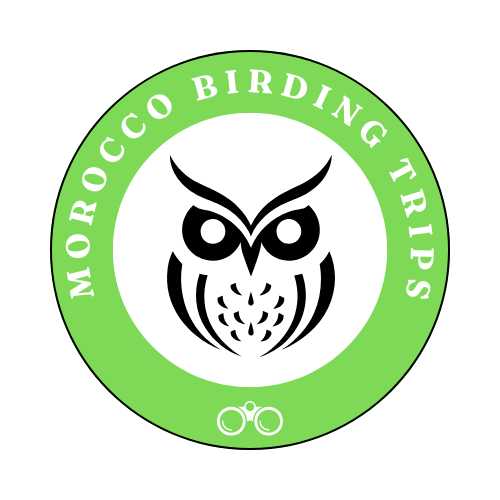FAQs
QUESTIONS / ANSWERS
Frequently Asked Questions
What are the best birding destinations in Morocco?
Morocco offers diverse birding destinations, including the Sahara Desert, High Atlas Mountains, Souss-Massa National Park, Merja Zerga, and the Atlantic coast. Each region hosts unique bird species, from desert specialties to wetland waders.
What rare and endemic birds can be seen in Morocco?
Morocco is home to several rare and endemic species, including the Bald Ibis, Moussier’s Redstart, Levaillant’s Woodpecker, Tristram’s Warbler, and the African Desert Warbler. The desert regions are also famous for Egyptian Nightjars and Pharaoh Eagles-Owls.
Do I need a guide for birdwatching in Morocco?
While experienced birders can explore independently, hiring a local birding guide enhances the experience. A guide helps with spotting species, navigating remote locations, and providing expert knowledge about Morocco’s avifauna.
What should I pack for a Morocco birding tour?
Essentials for a birding trip in Morocco include binoculars, a field guide, a camera, comfortable hiking shoes, a hat, sunscreen, and layered clothing for varying temperatures.
What should I pack for a Morocco birding tour?
Essentials for a birding trip in Morocco include binoculars, a field guide, a camera, comfortable hiking shoes, a hat, sunscreen, and layered clothing for varying temperatures.
How can I book a Morocco birdwatching tour?
You can book a guided birding tour in Morocco through moroccobirdingtrips.com. We offer customized tours for all levels, from beginners to experienced birders.
Is Morocco safe for birdwatching tours?
Yes, Morocco is a safe country for travelers, including birdwatchers. The birding destinations are in peaceful areas, and local guides ensure a secure and enjoyable experience.
Is Morocco safe for birdwatching tours?
Yes, Morocco is a safe country for travelers, including birdwatchers. The birding destinations are in peaceful areas, and local guides ensure a secure and enjoyable experience.
Is Morocco safe for birdwatching tours?
Yes, Morocco is a safe country for travelers, including birdwatchers. The birding destinations are in peaceful areas, and local guides ensure a secure and enjoyable experience.
Can I combine birdwatching with cultural sightseeing in Morocco?
Absolutely! Many birding routes pass through stunning cultural sites like Marrakech, Fes, and Chefchaouen. You can easily combine birdwatching with visits to historic medinas, souks, and kasbahs.
Do I need a visa for a birding trip to Morocco?
Visitors from the US, UK, EU, Canada, and Australia can enter Morocco visa-free for up to 90 days. Other nationalities should check visa requirements before travel.
What is the climate like for birding in Morocco?
Morocco has varied climates:
- Coastal areas (e.g., Essaouira, Agadir): Mild temperatures year-round.
- Atlas Mountains: Cold winters, mild summers.
- Sahara Desert: Hot days, chilly nights.
Spring and autumn are the most comfortable seasons for birding.
What is the best desert location for birdwatching in Morocco?
The Sahara Desert, especially areas like Merzouga and Erg Chebbi, is ideal for spotting desert birds such as the Egyptian Nightjar, Greater Hoopoe Lark, and Desert Sparrow.
Where can I see the Bald Ibis in Morocco?
The best place to see the critically endangered Bald Ibis is in Souss-Massa National Park, near Agadir. This is one of the last strongholds of this rare bird.
What is the best way to explore Morocco’s birding hotspots?
The best way is through a guided birding tour that covers multiple ecosystems, from coastal wetlands to desert oases. We offer custom and group tours to maximize your birding experience.
Can I see flamingos in Morocco?
Yes! Flamingos are commonly found in Morocco’s wetlands, such as Merja Zerga, Oued Massa, and Dakhla Bay.
